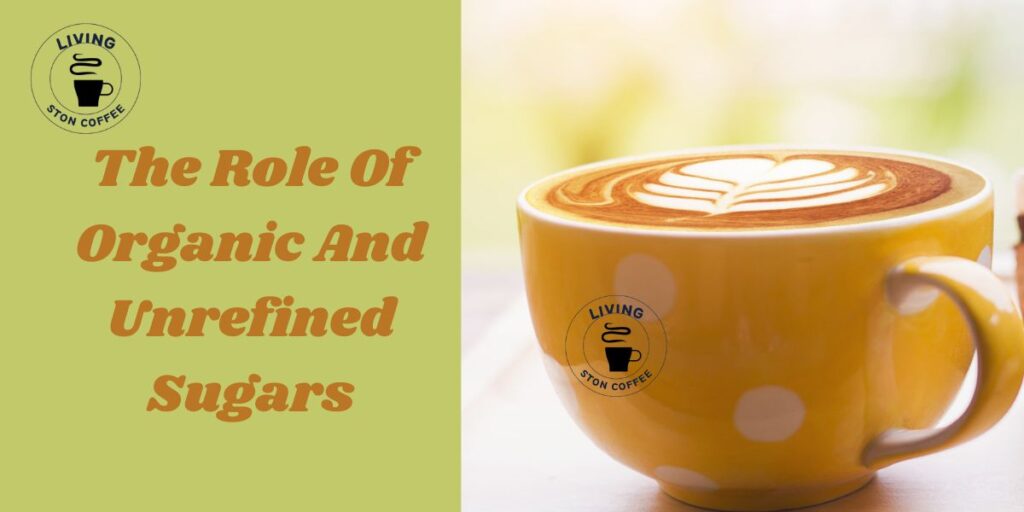Yes, you can use powdered sugar in coffee, but remember it will dissolve and sweeten your coffee quickly. Powdered sugar blends easily and adds sweetness to your coffee without the grainy texture of granulated sugar.
It is also a good choice for specialty coffee drinks like lattes and cappuccinos. Additionally, the fine texture of powdered sugar allows it to evenly mix into your beverage, eliminating any potential clumping from less soluble granulated sugar. However, just be mindful of the slight sweetness difference, as you may need to adjust the amount to suit your taste.
Effect Of Powdery Sweetness
Many coffee enthusiasts are intrigued by the idea of using powdered sugar in their coffee. The powdery sweetness of this sugar type brings a unique touch to the taste and experience of a cup of coffee. However, it’s essential to understand the impact of incorporating powdered sugar into your daily brew.
Texture And Flavor Infusion
When powdered sugar dissolves into hot coffee, it imparts a smooth and creamy texture to the beverage. The fine particles of the sugar blend seamlessly, creating a velvety consistency that enhances the overall drinking experience. Moreover, the delicate sweetness of the sugar adds a subtle, nuanced flavor to the coffee, making it an appealing choice for those seeking a milder and more refined taste.
Cornstarch And Sweetness Balance
The inclusion of cornstarch in powdered sugar can impact the sweetness and balance of your coffee. While cornstarch serves the purpose of preventing clumping in powdered sugar, it can also alter the sweetness level of the drink. It’s important to consider that the presence of cornstarch may introduce a unique flavor profile to the coffee, which could be preferred by some individuals while others might find it less desirable.
Substitution Suggestions
Incorporating powdered sugar into your coffee is doable, but it may lead to unexpected results due to its finer texture and slight cornstarch content. For a better substitute, consider Stevia, erythritol, xylitol, coconut sugar, agave nectar, or condensed milk to sweeten your coffee without altering its taste.
Substitution Suggestions Using powdered sugar in coffee may not be a conventional choice, but if you find yourself running out of your regular sweetener, it can be a practical substitution. However, it’s crucial to understand that powdered sugar isn’t solely composed of sucrose. Additionally, its fine texture can impact the drink’s overall consistency differently, and its sweetness level may also differ. Here we will discuss different substitution suggestions and their impact on coffee.
Alternative Sweeteners In Coffee
When considering substituting powdered sugar in coffee, there are several alternative sweeteners to choose from, each with its own distinct taste and impact on the final brew. Some of the common alternatives include: Stevia: A calorie-free sweetener derived from the leaves of the stevia plant. It’s significantly sweeter than sugar, so a very small amount is required to achieve the desired sweetness in coffee. Erythritol or Xylitol: Sugar alcohols with a sweet taste and a relatively low impact on blood sugar. They are often used as sugar substitutes in various recipes. Coconut Sugar: A natural sweetener derived from the sap of the coconut palm. It has a caramel-like flavor and is considered a healthier alternative to white sugar. Agave Nectar: A sweet syrup made from the agave plant. It has a mild taste and is commonly used as a natural sweetener.
Impact Of Different Sweeteners
The choice of sweetener can significantly impact the taste and overall experience of your coffee. Each sweetener has its own unique flavor profile and sweetness level, which can alter the final taste of the brew. Experimenting with different sweeteners can help you find the perfect balance for your coffee, catering to your personal taste preferences and dietary considerations. By carefully considering these alternatives and their impact, you can confidently explore the world of sweetening coffee beyond traditional choices, such as powdered sugar. Whether you choose to experiment with different sweeteners or stick to your go-to options, understanding the impact of these substitutions can enhance your coffee-drinking experience.
Coffee Sweetening Techniques
Sweetened Coffee
Coffee is not just a beverage; it’s a ritual, a daily indulgence that can be personalized to one’s taste. Sweetening techniques play a crucial role in enhancing the coffee-drinking experience. Whether you prefer a dash of sweetness or a richer, more aromatic flavor, the choice of sweetener can impact the overall taste profile of your coffee.
Using Different Sugar Variants
When it comes to sweetening your coffee, there are various sugar options available. From classic granulated sugar to powdered sugar, each variant can impart a distinct flavor and texture to your brew. Here’s a comparison of common sugar variants commonly used in coffee:
| Sugar Variant | Characteristics |
|---|---|
| Granulated Sugar | Traditional sweetener with a coarse texture |
| Powdered Sugar | Finely ground sugar often used for its ability to dissolve quickly |
| Raw Sugar | Unrefined sugar with a more robust flavor profile |
The Role Of Organic And Unrefined Sugars
SugarInBeverages
Organic and unrefined sugars have gained popularity among coffee enthusiasts due to their perceived health benefits and distinct flavor profiles. These sugars are less processed and may offer a more natural sweetness to your coffee. Some popular choices include:
- Raw Sugar: Known for its molasses-like flavor, raw sugar adds a nuanced sweetness to coffee, particularly dark roasts and espresso.
- Coconut Sugar: Derived from coconut palm sap, this sugar alternative imparts a subtle caramel note to your coffee.
- Agave Nectar: A natural sweetener with a low glycemic index, agave nectar can be a healthier option for those monitoring their sugar intake.
When exploring sweetening techniques for your coffee, it’s essential to find the right balance between sweetness and flavor enhancement. Experimenting with different sugar variants can open up a world of possibilities, allowing you to tailor your coffee to your specific preferences.
Frequently Asked Questions On Can You Use Powdered Sugar In Coffee?
What Happens If You Use Powdered Sugar Instead Of Regular?
Substituting powdered sugar for regular isn’t recommended due to its finer texture and cornstarch content. It may yield unexpected results.
What Can I Use Instead Of Granulated Sugar In Coffee?
You can use substitutes like stevia, erythritol, xylitol, coconut sugar, agave nectar, or condensed milk.
Can You Sweeten Drinks With Powdered Sugar?
Yes, you can sweeten drinks with powdered sugar. However, powdered sugar has a finer texture and may give unexpected results.
What Is The Best Sugar For Coffee?
The best sugar for coffee is raw sugar, especially suited for dark roast or Espresso. It adds a natural touch to the taste.
Conclusion
While powdered sugar can be used in coffee, it’s important to consider its finer texture and cornstarch content. It may lead to unexpected results, so alternative sweeteners like stevia or raw sugar can be great options to enhance your coffee experience.
Experiment and find the best fit for your taste.



